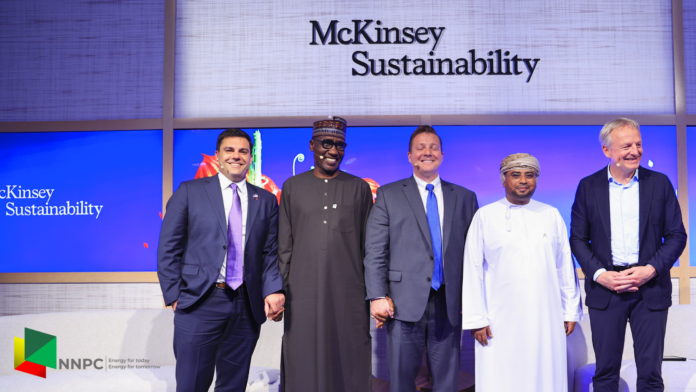As conversations on finding sustainable solutions for a decarbonized energy future continue to hold globally, the Group Chief Executive Officer (GCEO), NNPC Ltd., Mele Kyari has said the African Continent needs “a just, differentiated transition” to enable it to harness its resources for the benefit of its future generations.
The GCEO made this known while speaking at a Regional CEO Panel organised by McKinsey & Company on the sidelines of the ongoing United Nations Conference on Climate Change (UNCCC), also known as the COP28 Conference, in Dubai, UAE, on Monday.
Joining other global energy leaders from the United States, Holland, and Oman to highlight energy perspectives and insights on the evolving energy market, said the world must understand Africa’s peculiarities in addressing the effects of climate change on energy businesses.
He said In present Africa, 75% of the population doesn’t have access to electricity, whereby biomass is a key energy source. He explained that the world needs to recognize that the most practicable thing today is to substitute what africa has in the short term to close the energy gap for its rising population.
According to the GCEO, with abundant natural gas reserves of 206 trillion cubic feet (tcf) that have the potential to rise to 600tcf, Nigeria is currently utilizing gas to drive its journey towards energy transition.
He said that NNPC Ltd. is creating a regional gas pipeline network to supply natural gas across the African continent and boost its Liquefied Natural Gas (LNG) supply to the foreign market.
Explaining that NNPC Ltd. is currently eliminating gas flares in almost all its gas projects, Kyari said the idea is to deploy such gas towards developing power plants nationwide, which will boost nationwide electricity supply, create employment opportunities, and trigger the nation’s industrial and economic development.
He said that to demonstrate NNPC Ltd’s commitment to a net-zero future by 2025, the Company recently signed up as a participant in the United Nations Global Compact in New York, becoming the first state-owned oil company to join the global initiative.


